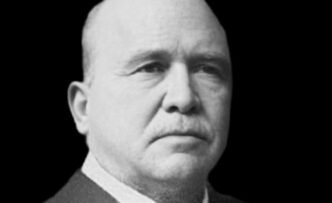Early Life and Education
Richard Freeman Post was born on November 14, 1918, in Pomona, California. His parents, Miriam Jocelyn Colcord and Freeman Post, provided a culturally rich upbringing that nurtured his passion for science and innovation, aided by his grandparents, Pamela Jocelyn Mudge and Daniel Herbert Colcord.
Post received rigorous education in physics, earning degrees that propelled him to become a prominent U.S. physicist in nuclear fusion, plasma physics, and magnetic mirror technology.
Contributions to Physics
Richard F. Post significantly contributed to physics, especially in nuclear fusion. A plasma physics pioneer, he focused on magnetic confinement fusion, a nearly limitless clean energy source. His research included magnetic mirrors, essential for confining plasma in fusion reactors.
Post made significant advances in magnetic levitation and bearing design. His passive magnetic bearing innovations have impacted advanced transportation and energy storage. This cements his title as the ‘father of the modern flywheel,’ highlighting his ingenuity.
Career at Lawrence Livermore National Laboratory
Richard F. Post was a Senior Scientist at Lawrence Livermore National Laboratory from 1987 to 2015, leading the magnetic mirror program in controlled thermonuclear research and advancing energy science innovation.
His role at LLNL placed him at the forefront of scientific research, allowing collaboration with top physicists and engineers. Under his leadership, LLNL became a center for advancements in nuclear fusion, plasma physics, and energy conversion technologies.
Personal Life and Legacy
Post, an eminent physicist and beloved family man, passed away on April 7, 2015, at 96 in Walnut Creek, California, due to sudden illness. He remained passionately engaged in his work until the end.
He is survived by his children, including actress Markie Post, and grandchildren Daisy and Kate Ross. His passing marks the end of an era, but his pioneering work continues through his technologies and methodologies.
Awards and Recognition
Richard F. Post received many accolades in physics, including the James Clerk Maxwell Prize for Plasma Physics in 1978 for his contributions to plasma physics, highlighting his impact on scientific progress.
FAQ

Who was Richard F. Post?
Richard F. Post was an American physicist recognized for contributions to nuclear fusion, plasma physics, magnetic mirrors, magnetic levitation, magnetic bearing design, and direct energy conversion. He was born on November 14, 1918, in Pomona, CA, and died on April 7, 2015, in Walnut Creek, CA.
What were Richard Post’s key scientific contributions?
Richard Post is a prominent figure in nuclear fusion and plasma physics, known for pioneering magnetic confinement fusion technology, particularly magnetic mirrors, and advancing magnetic levitation and bearing design, significantly impacting energy production and technology.
Did Richard Post receive any awards for his work?
Richard F. Post received multiple awards, including the 1978 James Clerk Maxwell Prize for Plasma Physics, recognizing his significant contributions to the field.
Where did Richard Post work during his career?
Richard Post served as a Senior Scientist at Lawrence Livermore National Laboratory (LLNL) from 1987 to 2015, leading the magnetic mirror program in controlled thermonuclear research.
Richard Post was the father of actress Markie Post and had grandchildren Daisy Ross and Kate Armstrong Ross. His family continues to uphold his legacy.
What is Richard Post’s impact on modern technology?
Richard F. Post’s legacy includes groundbreaking research in energy production and magnetic systems, with influential work in nuclear fusion and magnetic levitation impacting modern technology.








